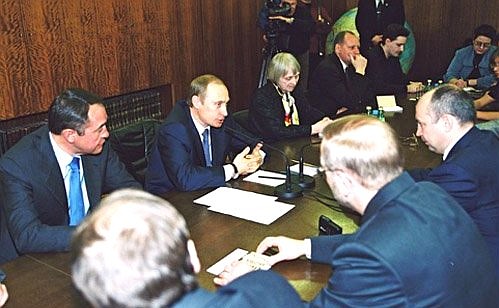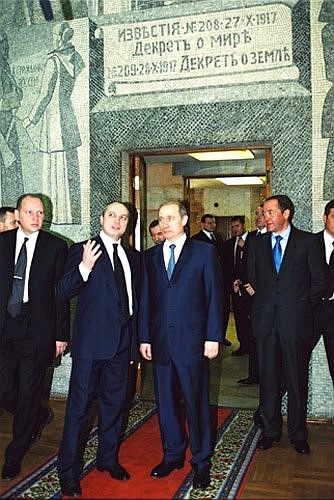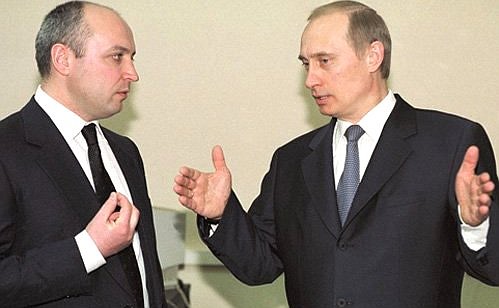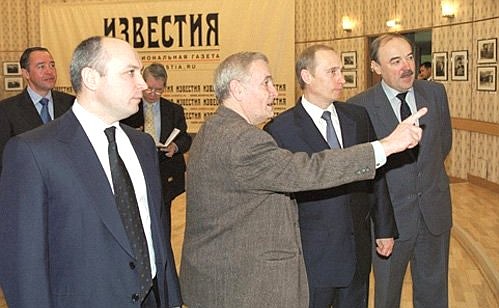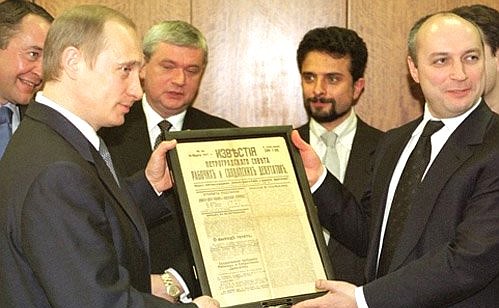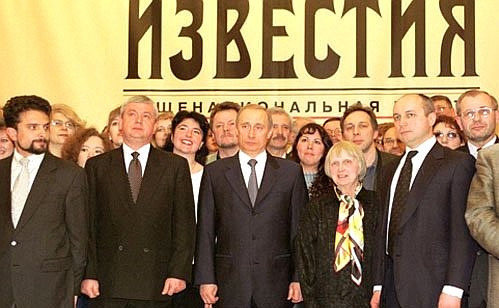President Putin visited the editorial offices, inspected a photo exhibition featuring the best images taken by Izvestia press photographers and dropped in at the newsroom. After that the President gave an interview to the paper’s journalists.
The meeting with the President was attended by Vasily Zakharko, Izvestia’s editor-in-chief 1997–1998, Rada Adzhubei, the widow of Alexei Adzhubei, who edited the paper in 1959–1964, and Nikita Khrushchev’s daughter, members of the Izvestia editorial board, and Mikhail Lesin, Minister for Press, Television and Radio Broadcasting and Mass Media.
In congratulating the journalists, the President pointed out that information media become independent when they enjoy economic freedom. He said he believed Izvestia had done precisely that.
President Putin said he tried to scan all the main newspapers to obtain a general overview of information. He said he preferred economic news first, whatever newspaper he was reading, and tried not to read about himself, considering it a waste of time.
The interview lasted more than an hour. The President and the journalists discussed not only the paper’s work, its past and present, but also current topics – Russian-American relations, the need to abolish the death penalty, alternative national service, economic problems, a tender for a sixth television channel, and the possibility of sharing some of the state’s functions with St Petersburg. The President systematically replied to all questions.
The President said he would do everything he could to prevent the return of capital punishment. The problem of crime, he said, should be addressed by entirely other means – improving the economic situation in the country, solving social problems, overcoming poverty and social inequality, and promoting law enforcement.
He spoke of the need to accelerate the development of Russia as a key condition for preserving its sovereignty and independence. Despite positive trends in the economy over the past two years, the country suffered from low rates of economic growth, he noted.
As regards Russian-American relations, the complications existing there, he said, were due to the fact that the US had more people living with an outdated mentality. The President explained that while Russia had lived through great and capital changes and had assumed a very different identity, a considerable part of American society had not altered its views. He thought that in cooperating with America one needed to proceed from common interests shared by the two countries.
The President expressed himself in support of an alternative to military service and a shorter tour of duty in the Armed Forces. He said that though he believed the citizens of Russia must have a choice, no one had the right to take advantage of the alternative service discussion. Until a relevant law was adopted, everything taking place in that sphere was a violation of legislation and subject to a prosecutor’s examination, he said.
The President said the Defence Ministry was currently conducting an experiment in one of the Pskov Region’s divisions to calculate the possibility of reducing the length of military service and introducing an alternative service.
